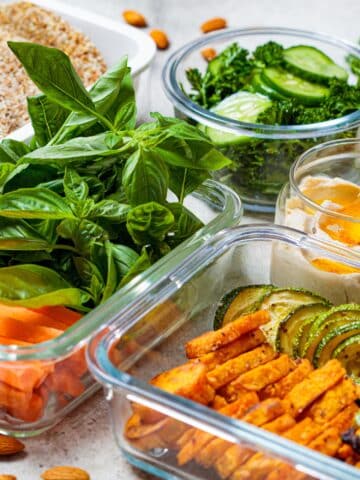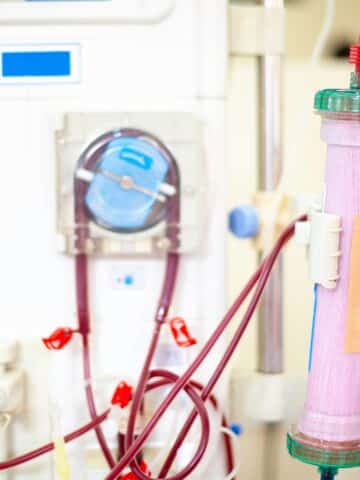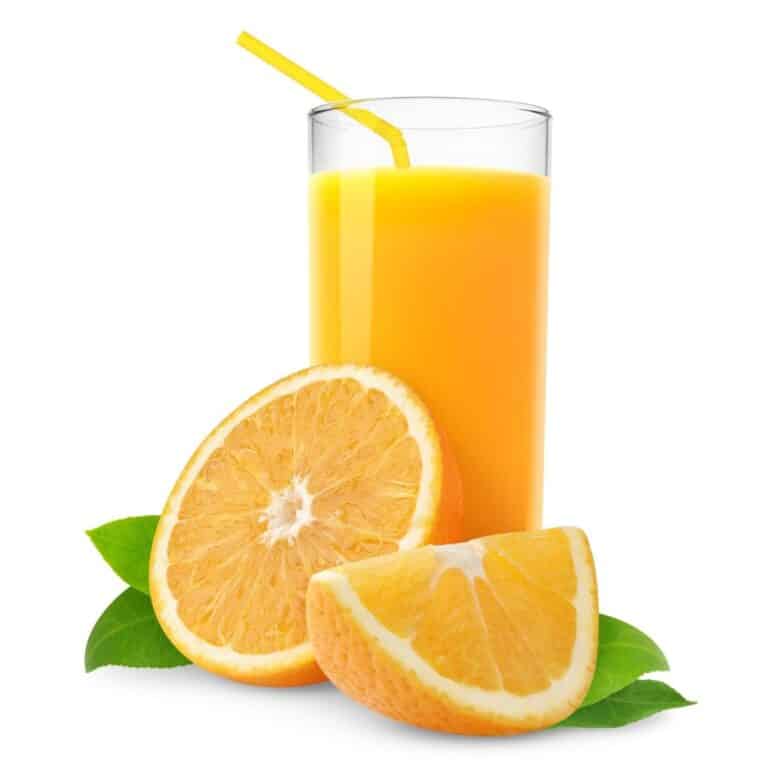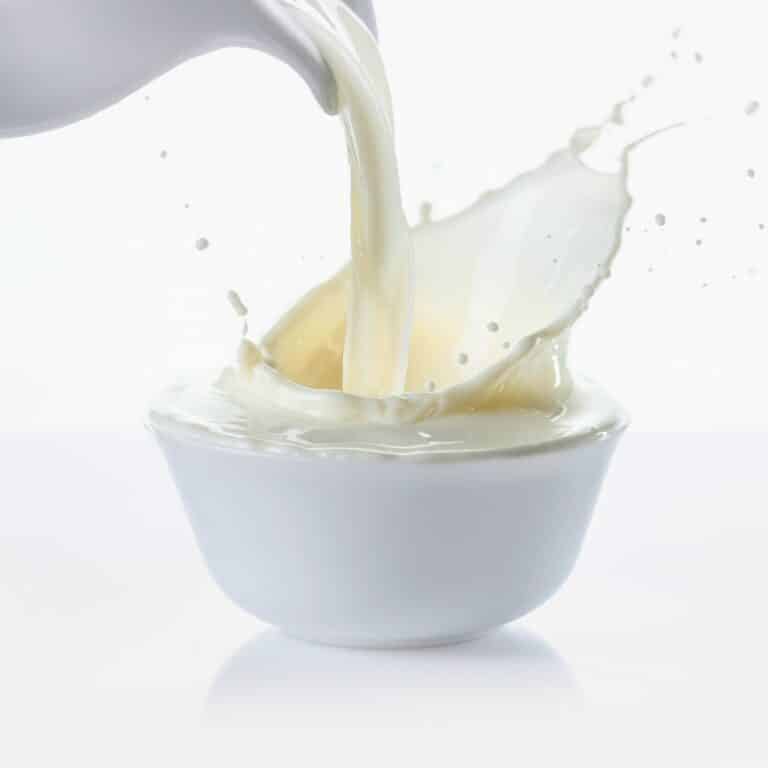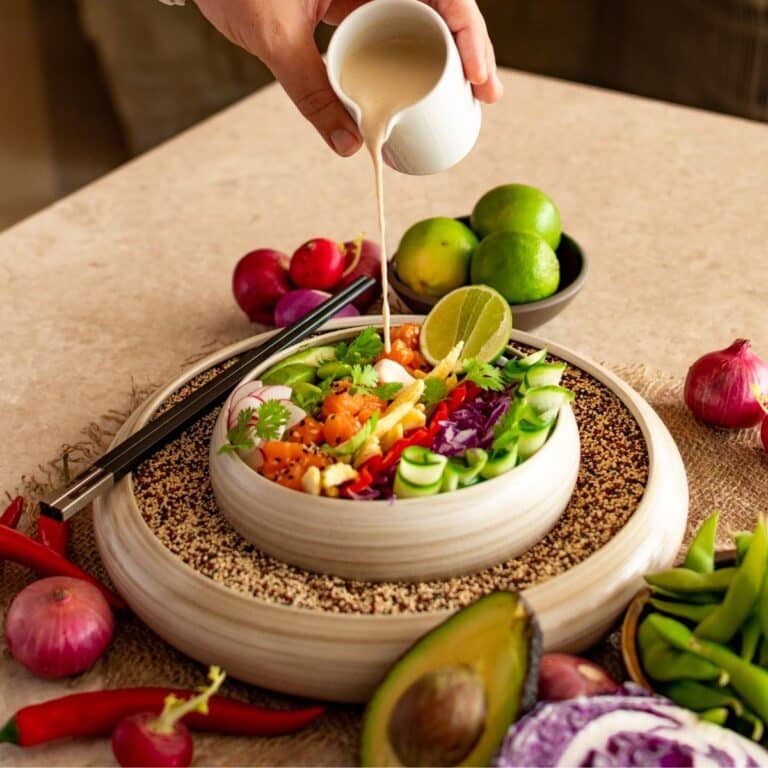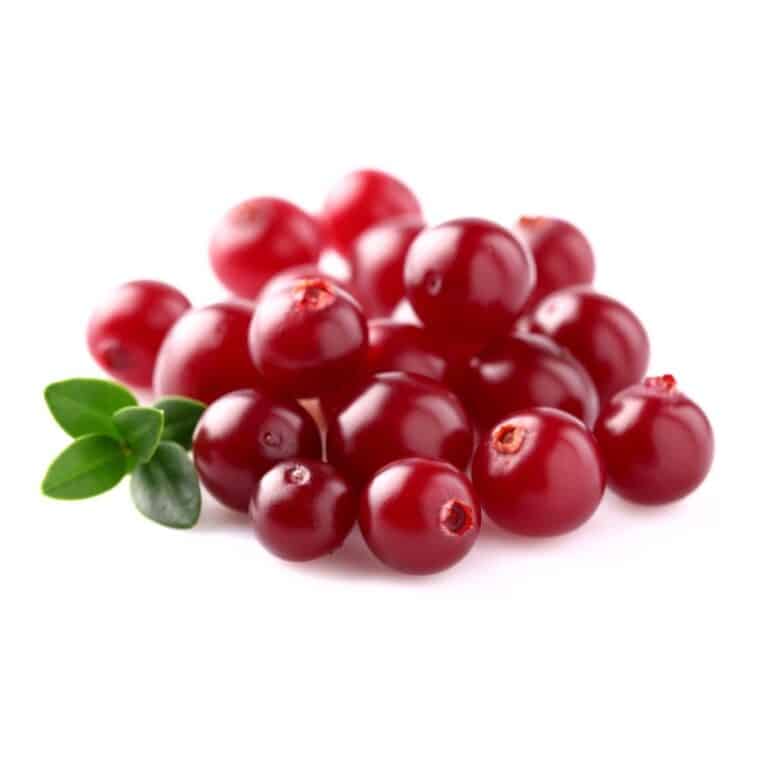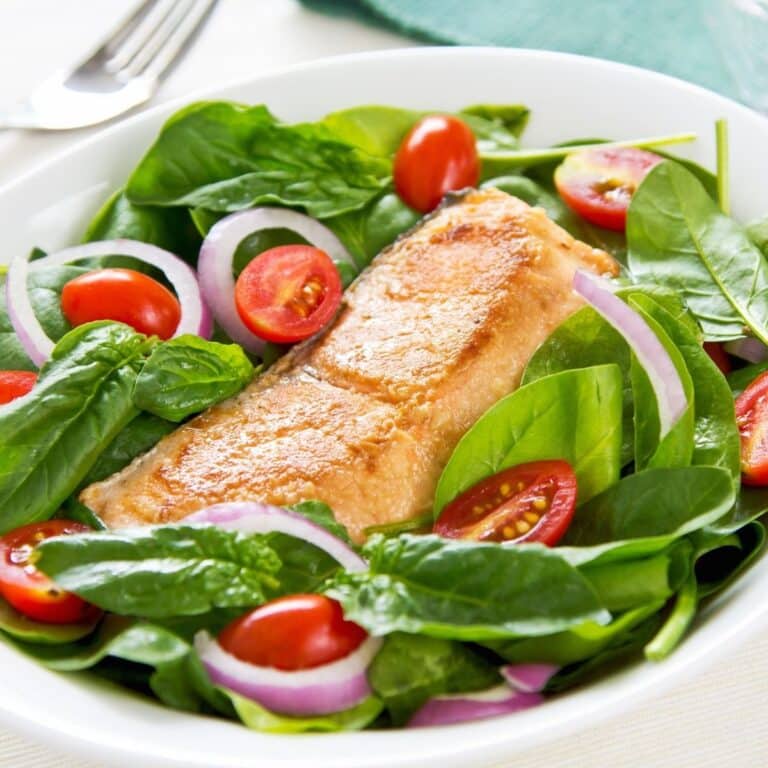Vegetarian Renal Diet
Wondering how to manage your kidney health while sticking to your vegetarian lifestyle? You're in the right place. We'll guide you through the essentials of a vegetarian renal diet, explain how to control sodium, potassium and phosphorus intake, and ensure you're meeting all your nutritional needs.
Remember, it's not just about restrictions but about making smarter choices. Let's embark on this journey together to achieve a healthier you, while avoiding a meat-based diet.
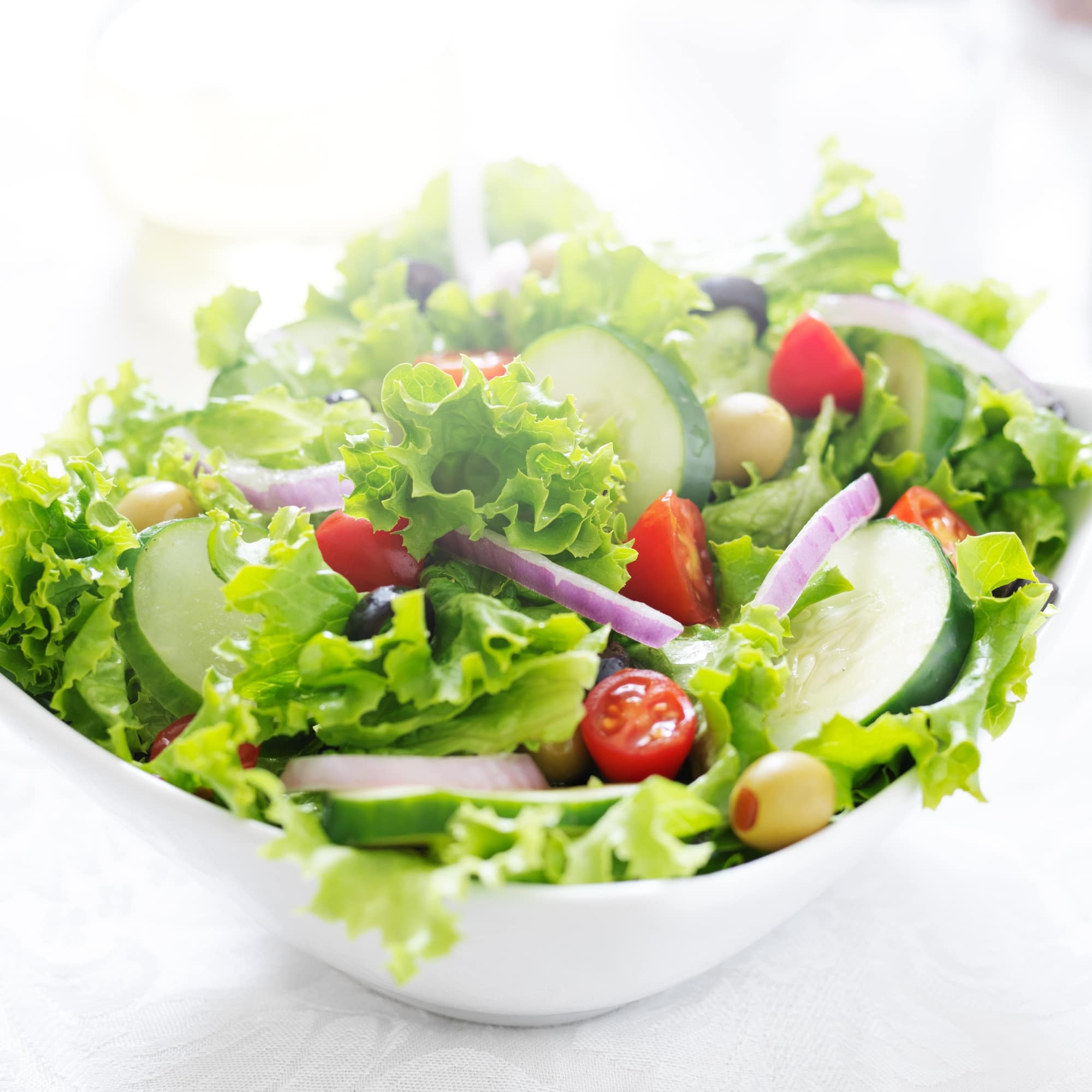
Jump to:
- Key Takeaways
- Protein Sources for Vegetarians
- Sodium Management in Diet
- Controlling Potassium Intake
- Phosphorus in Renal Diet
- Importance of Vitamins and Minerals
- Advantages of Vegetarian Renal Diet
- Disadvantages of Vegetarian Renal Diet
- Essential Dietary Considerations
- Meeting Nutritional Requirements
- Consulting Health Professionals
- FAQs for Vegetarian Renal Diet
- Understanding a Vegetarian Renal Diet and the Benefits
Key Takeaways
- Protein moderation is crucial to prevent strain on the kidneys.
- Choose low-phosphorus protein sources like soy products.
- Limit sodium intake by avoiding high-sodium convenience foods and opting for low-sodium alternatives.
- Control potassium intake by identifying and limiting high-potassium foods and choosing low-potassium options.
For More Recipes and Ideas --->> Get Your Free Meals and Recipes That Are Perfect for Pre-Dialysis Diets, Pre-Dialysis with Diabetes, or Dialysis Diets.
Protein Sources for Vegetarians
As a vegetarian following a renal diet, it's critical to understand your protein options and how to manage your protein intake.
From lentils to tofu, there are a variety of plant-based proteins that can fit into your vegan diet plan.
We'll explore these options and provide guidance on how to balance your protein intake while maintaining your kidney health. Consider consuming things like rice milk, brown rice, and other sources of proteins.
Vegetarian Protein Options
Considering a vegetarian renal diet, you'll need to look into diverse sources of protein that suit your lifestyle and dietary restrictions. Fortunately, vegetarian diets offer a wide range of protein-rich foods from plant-based foods.
- Soybean benefits: Soybeans are high in protein and fiber. They're also beneficial for heart health.
- Tofu consumption: Tofu, made from soybeans, is a versatile protein source that can be prepared in various ways.
- Lentil advantages: Lentils are a great source of protein and fiber. They're also low in fat and high in iron.
- Quinoa utilization: Quinoa is a complete protein, meaning it contains all nine essential amino acids.
- Mushroom proteins: Mushrooms, particularly the white variety, are rich in protein and fiber.
People with kidney disease need to focus on the right foods, low-protein diet, adequate nutrition, and blood pressure control on a plant-based diet.
Managing Protein Intake
Balancing your protein intake as a vegetarian on a renal diet can be challenging, but with the right food choices, you'll manage effectively.
Protein moderation is key. Overloading on protein can strain your kidneys, so it's crucial to make thoughtful choices in your daily diet.
Vegetarian challenges often include finding protein-rich foods that aren't too high in potassium or phosphorus. Dairy alternatives like almond or oat milk can help, as they usually contain less protein than traditional dairy products. Soy products, including tofu and tempeh, are excellent sources of low-phosphorus protein.
Remember, a balanced diet isn't just about protein. You also need to consider your intake of other nutrients, like vitamins and minerals.
Through variety and careful planning, you can maintain a healthy, kidney-friendly diet. Obviously, on a vegetarian renal diet, you aren't going to consume animal foods.
It's important to reap the benefits of plant(s). Feel free to speak to your kidney dietitian if you have any questions.
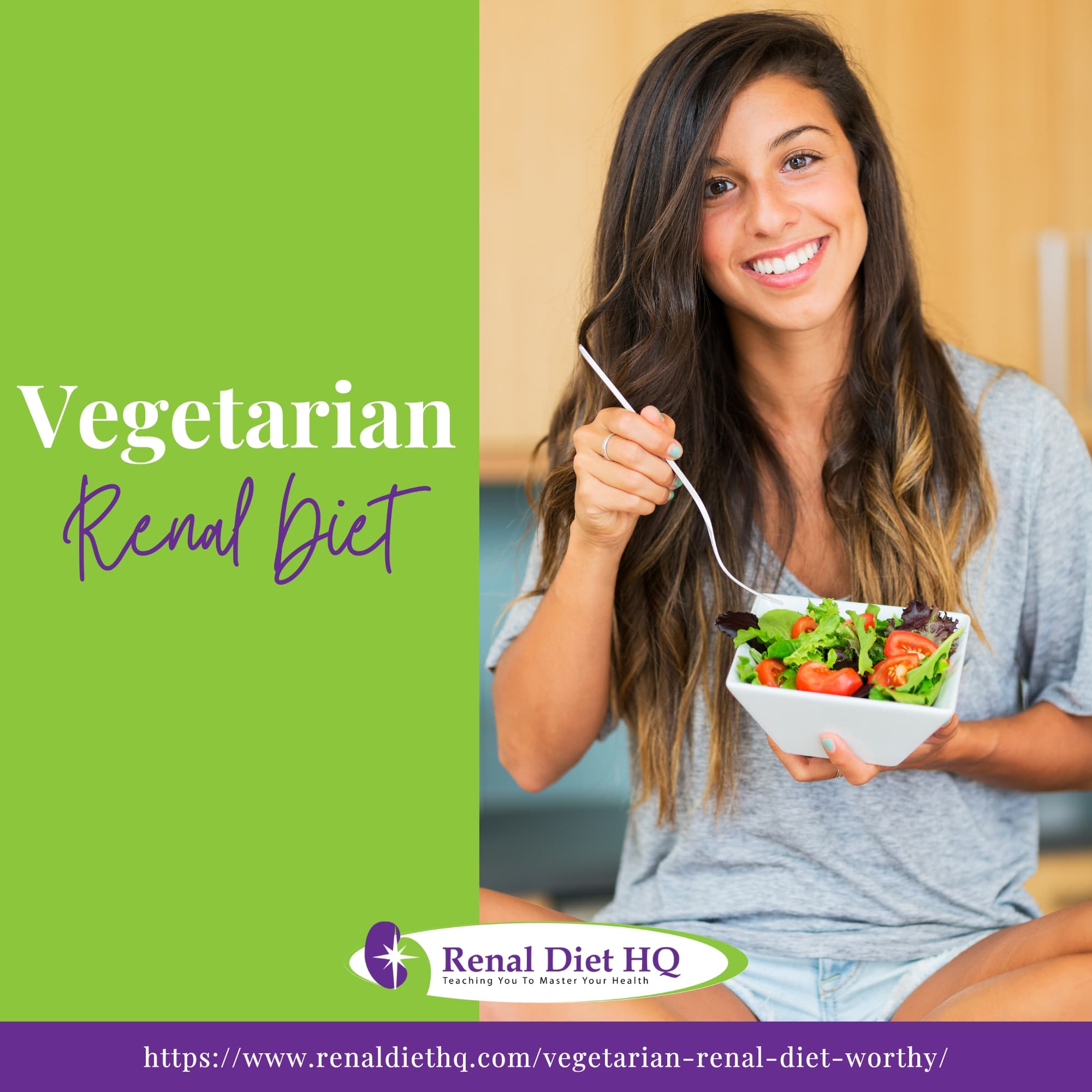
Sodium Management in Diet
Managing sodium in your diet is a crucial aspect of a vegetarian renal diet. It's important to limit convenience foods, as these often contain high amounts of sodium.
You should also be mindful of avoiding sodium-rich spices, opting instead for low-sodium alternatives to maintain flavor without compromising your health when eating vegetarian foods.
Limiting Convenience Foods
You've got to be mindful of your sodium intake, especially since many convenience foods are loaded with it. These processed food drawbacks include high sodium content, which can negatively impact your renal failure. However, you can explore healthier convenience food alternatives.
- Home cooked meals: They not only reduce your sodium intake but also allow you to control what goes into your meals.
- Organic food benefits: They're free from harmful pesticides and are naturally low in sodium.
- Vegan snack options: Fresh fruits and snacks like unsalted nuts and seeds are satisfying and healthy.
- Reading food labels: This helps you choose low-sodium products on vegetable-based diets.
These strategies can help you maintain a healthy vegetarian kidney diet, without compromising the convenience and taste you love.
Avoiding Sodium-Rich Spices
How can you further cut back on your sodium intake, specifically in the area of flavorings and spices? It's crucial to avoid sodium-rich spices and opt for spice alternatives. Flavor enhancers like vinegar, lemon juice and herbal seasonings can do wonders to replace salt in your diet.
Here's a handy guide:
| Salt-Rich Spice | Salt Substitute |
|---|---|
| Table Salt | Vinegar |
| Garlic Salt | Garlic Powder |
| Onion Salt | Onion Powder |
| Seasoning Salt | Herbal Seasonings |
| Celery Salt | Celery Seed |
Controlling Potassium Intake
Managing your potassium intake is an essential aspect of a vegetarian renal diet. It's critical to identify and limit foods high in potassium, which can adversely affect kidney function.
Evaluating and selecting alternative protein sources can also aid in keeping your potassium levels in check.
Limiting High-Potassium Foods
While it's important to get enough potassium in a healthy diet, when you're following a vegetarian renal diet, you'll need to be careful not to consume too much. Potassium rich fruits and vegetables with high potassium content can contribute to an overload.
High potassium grains and potassium in beverages can also add to your daily intake while dealing with Chronic Kidney Disease.
To aid in lowering potassium levels, try to:
- Limit foods like bananas, oranges, and potatoes which are high in potassium
- Choose low-potassium options such as apples, berries, and green beans
- Be mindful of beverages like coffee, tea, and certain fruit juices that may have high potassium content
- Consider incorporating more whole grains and cereals, which typically have lower potassium levels.
Alternative Protein Selections
Even though you're cutting back on high-potassium foods, you still need to ensure you're getting enough protein in your diet, and there are plenty of low-potassium protein options available to you. Plant-based proteins can be an excellent part of your diet.
Soy products, like tofu, are versatile and can be included in many dishes. Quinoa offers immense nutritional benefits, including protein. Lentil consumption is also a good way to incorporate protein into your vegetarian renal diet.
Below is a table with some protein alternatives and their benefits:
| Protein Source | Benefits | Potassium Control |
|---|---|---|
| Plant Based Proteins | High in fiber, low in fat | Varies by type |
| Soy Products (Tofu) | Versatile, good source of protein | Low in potassium |
| Quinoa | High in protein, fiber and various vitamins | Low in potassium |
Phosphorus in Renal Diet
As we shift our focus to phosphorus in your renal diet, it's crucial to discuss two key strategies: limiting high phosphorus foods and avoiding phosphate additives.
You'll find that managing your phosphorus intake is just as important as controlling potassium for kidney health.
In the following sections, we'll provide you with detailed information on which foods to limit and how to make smart choices when it comes to additives.
Limiting High Phosphorus Foods
In managing your vegetarian renal diet, it's crucial that you limit foods high in phosphorus to protect your kidney function. Phosphorus rich fruits, while nutritious, should be consumed in moderation. Incorporating phosphorus free recipes into your meal plan can help reduce phosphorus intake.
Consider dairy alternatives as they can be high in phosphorus. Soy milk, for instance, is a good option. Legume consumption should be carefully monitored since many legumes are high in phosphorus.
Here are some suggestions to help manage your phosphorus levels:
- Opt for phosphorus absorption inhibitors
- Limit consumption of phosphorus rich fruits
- Use phosphorus free recipes for meal planning
- Choose dairy alternatives and limit legume consumption
Phosphate Additives Avoidance
Continuing your journey towards a healthier renal diet, you'll need to be vigilant about avoiding phosphate additives, which can significantly increase your phosphorus intake.
To manage this, it's essential to understand phosphate absorption and how to identify these additives. Reading labels carefully will play a crucial role in this task. Look for ingredients like 'phosphates' or 'phosphoric acid', which indicate the presence of phosphate additives.
Consider using natural alternatives instead of processed foods that are high in these additives. There are many phosphate free recipes available that are both nutritious and tasty. Preparing meals at home from fresh ingredients can significantly reduce your phosphorus intake and enhance your renal health.
Importance of Vitamins and Minerals
It's crucial for you to understand the role of vitamins and minerals in a vegetarian renal diet. These essential nutrients may require supplementation to avoid deficiencies in your diet end-stage renal disease diet.
As always, it's highly recommended to consult with a dietician for personalized guidance to ensure optimal health.
Supplementing Nutrient Deficiencies
As you transition to a vegetarian renal diet, you'll need to pay special attention to supplementing potential nutrient deficiencies, particularly key vitamins and minerals. Nutrient absorption might take a hit, and you could face a vitamin B12 deficiency, commonly seen in vegetarians. Iron supplementation might become necessary, as plant-based diets often lack sufficient iron.
To ensure optimal health, focus on:
- Increasing your calcium intake, crucial for bone health and metabolic functions.
- Searching for plant-based omega 3 sources like flaxseeds or chia seeds.
- Incorporating fortified foods or supplements to tackle possible B12 deficiency.
- Consuming iron-rich foods like lentils, tofu, and spinach, or consider iron supplements.

Consulting A Renal Dietitian for Guidance
To ensure you're getting the right balance of vitamins and minerals in your vegetarian renal diet, a dietitian consultation could be your game-changer. A qualified renal dietitian possesses the expertise to devise personalized diet plans that meet your specific nutritional needs. They're skilled in handling food cravings, making sure you maintain a healthy diet without feeling deprived.
Effective dietician communication tips include open, honest discussions about your dietary concerns. They'll provide emotional support, recognizing the importance of mental well-being in overall health. It's not just about what you eat, but also how you feel about your diet.
Advantages of Vegetarian Renal Diet
Switching to a vegetarian renal diet offers significant benefits based on your vegetarian sources.
Firstly, the protein content in vegetables is easier on your kidneys, reducing the strain and potential for damage.
Moreover, this diet can also help in lessening kidney tissue damage, fostering better renal health overall.
Protein Content in Vegetables
In the realm of a vegetarian renal diet, you'll find that many vegetables are surprisingly high in protein, offering substantial nutritional benefits for your kidney health and improvements in your renal function. It's important to understand the role protein plays, including key aspects like Protein Absorption, Plant Based Proteins, and Non Dairy Proteins.
- Protein Absorption: Your body absorbs these plant proteins easily, aiding in various essential functions.
- Plant Based Proteins: They're less likely to cause allergies compared to their animal counterparts.
- Allergies and Proteins: Plant proteins tend to be less allergenic, reducing potential risks.
- Protein Deficiency: A diet rich in protein-packed vegetables can help prevent protein deficiency.
Incorporating high-protein vegetables into your diet isn't only beneficial for your overall health, but it's also a brilliant way to support your kidney function.
Reducing Kidney Tissue Damage
Adopting a vegetarian renal diet can significantly diminish kidney tissue damage, giving you a healthier way to manage your kidney health. This diet incorporates kidney friendly herbs, oxalate rich foods, vegan protein, and dietary fibers. These elements are crucial in maintaining kidney health and preventing further damage.
Hydration plays a critical role too. Drinking plenty of water helps flush out toxins, reducing the burden on your kidneys. Oxalate rich foods, like spinach and rhubarb, should be consumed in moderation as excessive oxalates can harm your kidneys.
Vegan protein sources, such as lentils and tempeh, are less taxing on your kidneys compared to animal proteins. Dietary fibers aid digestion, further easing the load on your kidneys.
Disadvantages of Vegetarian Renal Diet
While the vegetarian renal diet has its significant benefits, it's crucial to be cognizant of some potential drawbacks.
The first concern is the high sodium content present in meat analog products, which can be harmful to your kidneys.
Also, you may encounter difficulty in getting enough protein, as plant-based proteins aren't as easily absorbed by the body.
Sodium in Analog Products
Beware, as you may be unknowingly consuming high amounts of sodium through analog products, a common downfall of the vegetarian renal diet. These analog health risks stem from the fact that these products, made to mimic meat, often contain hidden sodium to enhance flavor.
This is where the label reading importance comes in. It's essential to read labels and compare analog product information to make a well-informed choice.
Some key pointers to consider are:
- Look for flavor alternatives with less sodium
- Learn new analog cooking techniques to further reduce sodium
- Always compare analog products for their sodium content
- Understand the long-term health risks of high sodium
Low Protein Intake
How can you manage the challenge of maintaining adequate protein intake, a common drawback of the vegetarian renal diet?
Well, let's address the plant-based protein myths first. Contrary to what some believe, plant proteins can provide the necessary amino acids. However, protein digestion complications may arise if you solely rely on them due to the high fiber content.
The risk of protein deficiency is real and can result in muscle wasting and a weakened immune system. Don't overlook the benefits of soy-based protein, which is a nutritious, non-animal source. Despite the controversy surrounding non-animal proteins, they can be vital for your health.
Strive to attain a balanced diet that includes a variety of plant-based proteins to ensure you're meeting all your nutritional needs.
Essential Dietary Considerations
When following a vegetarian renal diet, it's crucial to consider certain dietary elements. You need to maintain a balance of nutrients, ensuring you get ample amounts of all essential vitamins and minerals.
It's also important to supplement any nutritional deficiencies, as this diet may restrict certain nutrients needed for kidney health.
Nutrient Balance in Diet
You'll need to consider the balance of essential nutrients in your diet to maintain your renal health as a vegetarian. Particularly, you should focus on:
- Balancing Carbohydrates: Strive for a mix of simple and complex carbohydrates to maintain energy levels and support kidney function.
- Micronutrient Importance: Ensure you're getting enough vitamins and minerals, especially those that support kidney health.
- Fiber Rich Foods: Incorporate plenty of fruits, vegetables, and whole grains to assist in removing waste from your body.
- Hydration Significance: Drink sufficient water to help your kidneys filter waste products.
- Healthy Fats: Include sources of unsaturated fats to maintain good cardiovascular health.
Supplementing Nutritional Deficiencies
In managing your vegetarian renal diet, it's essential to supplement any nutritional deficiencies you might encounter. Optimal health requires maintaining a balance of nutrients, and dietary supplements can play a vital role.
Vitamin deficiency, particularly of Vitamin B12, often afflicts vegetarians. Prioritize your B12 intake by including fortified foods or supplements.
Iron is another key nutrient to consider, as plant-based iron isn't absorbed as effectively. Consuming vitamin C-rich foods with iron-rich meals can enhance iron absorption.
Calcium sources include fortified plant milks, tofu, and leafy greens. However, remember that excessively high calcium intake may not be beneficial for kidney disease patients.
Always consult a healthcare professional before making any significant changes to your diet.
Meeting Nutritional Requirements
As you navigate your vegetarian renal diet, meeting nutritional requirements is crucial. You'll need to choose protein sources wisely and understand how to use supplements effectively.
In the following section, we'll discuss these two points to ensure your diet supports your kidney health, while aligning with your vegetarian lifestyle.
Protein Sources Selection
Choosing the right protein sources is crucial when you're following a vegetarian renal diet. The vegetarian challenges you face include ensuring adequate protein without overloading on phosphorus and potassium. Some protein-rich fruits, like avocado, can help meet your protein needs while also providing other essential nutrients.
Don't overlook soy-based alternatives. Tofu and tempeh are good choices, offering protein without adding undue strain on your kidneys.
Quinoa, another excellent source, has the added benefits of being high in fiber and aiding in nutrient absorption.
Consider these options:
- Avocado: A protein-rich fruit
- Tofu or tempeh: Soy-based alternatives
- Quinoa: A complete protein grain
- Proper cooking methods to enhance nutrient absorption
Together, these choices can help ensure your vegetarian renal diet is robust and nutritionally balanced.
Consulting Health Professionals
As you navigate your vegetarian renal diet, it's crucial to consult health professionals for guidance. They can provide essential advice on the importance of your diet and evaluate the use of any supplements you're considering.
Dietary Guidance Importance
For the sake of your kidney health, it's critical that you consult with a renal dietitian before starting a vegetarian renal diet. This step, known as 'Dietary Guidance Importance', involves evaluation of your current diet, guidance necessity, dietary adherence, and nutritional awareness.
The importance of amplification of these elements can't be overstated. Here's why:
- Importance evaluation: Assesses your current dietary habits and determines the changes required.
- Guidance necessity: Helps you understand the complex nutritional needs of a renal patient.
- Dietary adherence: Ensures you stick to the prescribed diet consistently for better health outcomes.
- Nutritional awareness: Educates you about the nutritional content of various foods, helping you make informed dietary choices.
Supplement Use Evaluation
In your journey to adopt a vegetarian renal diet, it's crucial you consult with health professionals about the use of dietary supplements. This is key in ensuring supplement safety and addressing possible nutrient deficiencies such as B12 deficiency.
You might consider herbal supplements, iron supplementation, or seek out Omega 3 sources. Each has its own benefits and risks which should be evaluated carefully. For example, herbal supplements can interact with medications while iron supplementation must be monitored to avoid toxicity.
Here is a brief table summarizing some points:
| Supplement | Considerations |
|---|---|
| Herbal | Interactions |
| Iron | Monitor levels |
| Omega 3 | Source and dosage |
| B12 | Deficiency risk |
FAQs for Vegetarian Renal Diet
Maintaining variety in your diet can be achieved through careful meal planning and portion control. Include diverse protein sources like legumes, tofu, and dairy. Use nutritional supplements if required, under a doctor's advice.
Understand the diet's benefits to stay motivated. Experiment with different recipes and flavors. Remember, the key is balance and moderation. Variety won't compromise your health, it'll make your meals interesting instead.
Your dietary choices greatly impact your overall health, not just your kidney function. A balanced diet can lead to health improvements like weight management and disease prevention.
It's crucial to ensure you're not missing out on essential nutrients. Consultation with a dietician can help you achieve this balance. In doing so, you're serving your body's needs, thus improving your overall health while also catering to your specific dietary restrictions.
Navigating a diet can feel like walking a tightrope, especially when you're considering what to avoid. Keep an eye on your potassium regulation.
High-potassium foods, like avocados, bananas, and spinach, aren't your friends here. You'd also be wise to opt for salt alternatives, given sodium's impact on blood pressure.
Maintain a moderate protein intake, manage your phosphorus levels and incorporate dietary fiber.
It's a delicate balance, but you're capable of mastering it.
Transitioning to a new diet comes with adapting challenges. You'll need to find suitable protein sources within vegetarian boundaries. Dietary supplements might help cover nutritional gaps.
Hydration becomes more important to flush out toxins. You might encounter some social implications at gatherings where meat is served.
But remember, it's your health you're managing. Stay patient, persistent, and positive. Consult a dietitian for personalized advice.
Understanding a Vegetarian Renal Diet and the Benefits
Navigating a vegetarian renal diet can be tricky, but it's not impossible.
Prioritize plant-based proteins, manage sodium, control potassium, and monitor phosphorus.
Don't forget the significance of vitamins and minerals.
Be aware of potential disadvantages, always consider your dietary needs, and ensure you're meeting all nutritional requirements.
Remember, consult your health professional for personalized advice.
It's a journey, but with careful planning and understanding, it becomes a feasible task.
You've got this!


